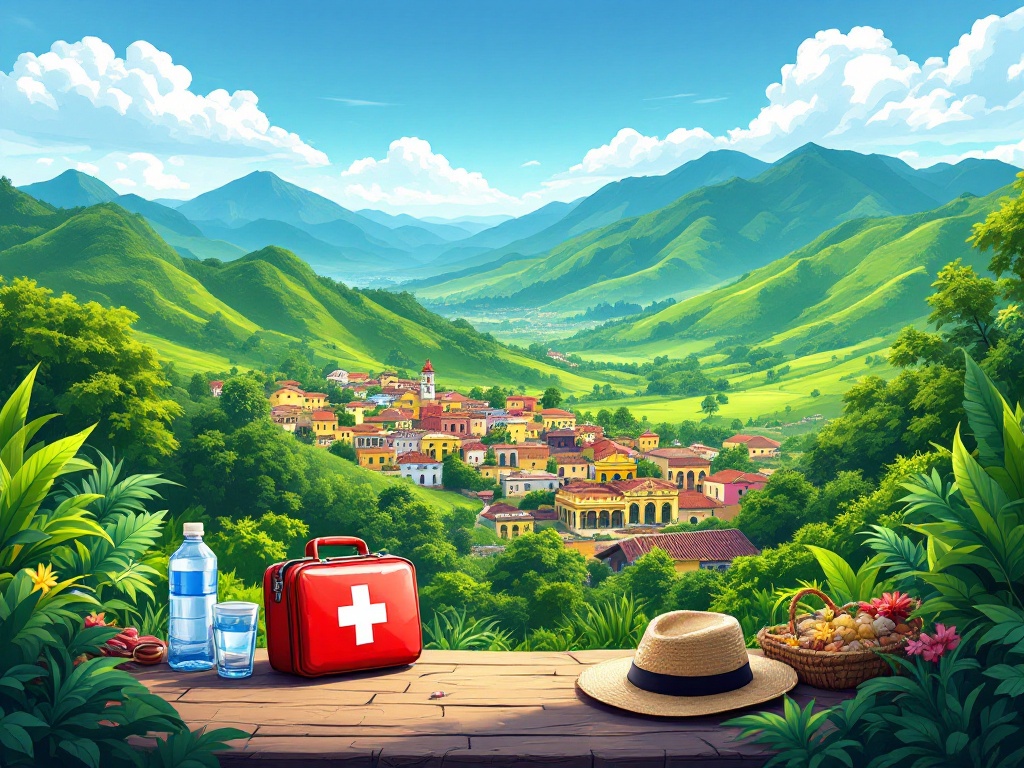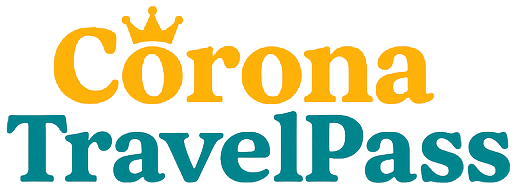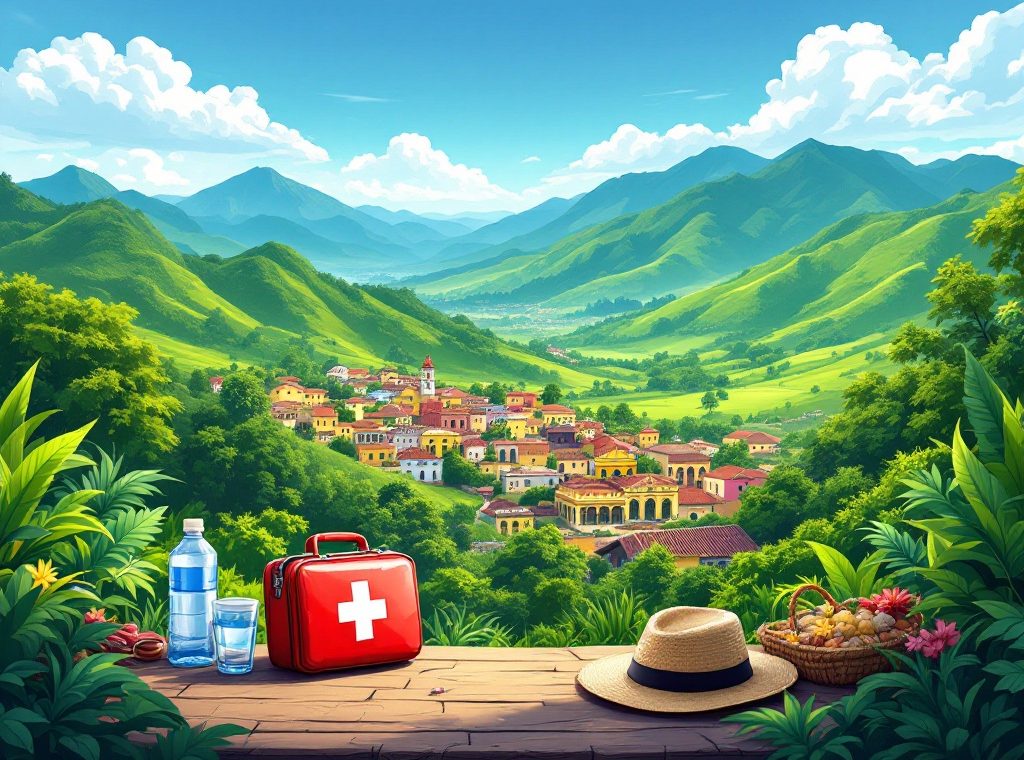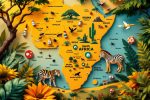Health Travel Advices When Planning Visit to Colombia
Dreaming of Colombia’s vibrant culture and breathtaking landscapes? Safeguard your health with crucial pre-trip preparations. Learn about recommended vaccinations like yellow fever and typhoid, especially vital for rural exploration. Discover essential safety tips, from packing a first-aid kit to staying hydrated at high altitudes. Explore our comprehensive guide to ensure a healthy and unforgettable Colombian adventure. Don’t wait, start planning your healthy getaway today!
Important information

- Consult your doctor 4-6 weeks before traveling to Colombia to discuss recommended vaccinations (Hepatitis A & B, typhoid, yellow fever, and potentially rabies and routine immunizations). Malaria prevention medication is advised for rural areas below 1500 meters, especially the Amazon, Orinoco River basins, and parts of the Pacific coast.
- Travel health insurance, including medical evacuation coverage, is highly recommended. Research local medical facilities and keep a list of doctors and hospitals. The emergency number in Colombia is 123.
- Take precautions against altitude sickness in mountainous regions. Ascend gradually, stay hydrated, avoid strenuous activity initially, and descend if symptoms (headache, dizziness, nausea) persist.
- Practice safe food and water habits. Drink bottled or boiled water, avoid tap water and ice, choose reputable restaurants, and be cautious with street food. Prioritize cooked dishes and peel fruits/vegetables.
- Protect yourself from mosquitoes using insect repellent with DEET, wearing long sleeves and pants, and minimizing outdoor activities during peak mosquito hours (early morning and late afternoon).
Essential Health Travel Advices for Visiting Colombia
Planning a trip to Colombia? Prioritize your health by consulting your doctor about recommended vaccinations, such as hepatitis A and B, typhoid, and yellow fever. If your itinerary includes rural areas, malaria prevention is crucial. Ensure your routine vaccinations are up-to-date.
Health Preparations
- Consult your doctor about recommended vaccinations, including hepatitis A and B, typhoid, and yellow fever.
- If traveling to rural areas, take necessary malaria prevention measures.
- Ensure your routine vaccinations are current.
Safety Essentials
- Pack a comprehensive first-aid kit with personal medications, insect repellent, and sunscreen.
- Practice good hygiene by washing hands frequently, especially before meals.
- Consume bottled or treated water and avoid raw or undercooked food.
- Carry hand sanitizer for extra safety.
Traveling to high-altitude locations like Bogotá or Medellín? Ascend gradually to acclimatize. Stay hydrated, avoid strenuous activities initially, and have light meals. If you experience altitude sickness symptoms like headaches or dizziness, descend to a lower altitude. Seek medical care if symptoms persist.Colombia has a reasonable healthcare system, especially in urban areas. However, travel insurance is highly recommended to cover potential medical costs. Familiarize yourself with local healthcare facilities. Keep a list of local doctors and hospitals. In emergencies, contact local emergency services. A translation app or basic Spanish phrases can be helpful.
Travel Vaccinations and Medicines
Planning a trip to Colombia? Prioritize your health by consulting your doctor 4-6 weeks before departure. Discuss necessary vaccinations and medications, and ensure your routine immunizations are up-to-date. These include MMR, diphtheria-tetanus-pertussis, varicella, and influenza. Depending on your travel plans, additional protection may be needed.
Recommended Vaccinations and Medications
- Malaria prevention medication is recommended by the CDC for certain regions.
- Hepatitis A and B vaccines are advisable.
- Typhoid and yellow fever vaccines are often recommended, particularly for rural travel.
Additional Considerations
- If your itinerary includes activities with potential animal exposure, discuss a rabies vaccine with your doctor.
- Sharing your detailed itinerary helps your doctor assess your specific health needs for a safe and healthy trip.
Importance of Routine Vaccinations
Routine vaccinations are essential for protecting us from preventable diseases such as measles, mumps, rubella, and polio. Keeping your vaccinations up-to-date not only safeguards your health but also significantly contributes to public health by limiting the transmission of these diseases. This, in turn, benefits the entire community.
Recommended Vaccines for Colombia
Please provide the text you would like me to refine. I will improve its clarity, engagement, and readability using HTML formatting where appropriate.
Discussing Rabies Vaccination
Planning a trip? Consider the risk of rabies. Your healthcare provider can assess your risk based on your itinerary and potential animal exposure. If you anticipate interacting with animals, consult your doctor about pre-travel rabies vaccination.
Prescription Medicine for Malaria Prevention
Planning a trip to Colombia? If you plan to visit rural areas below 1,500 meters, especially in regions like the Amazon and Orinoco River basins and parts of the Pacific coast, the CDC recommends taking antimalarial medication. These lower-elevation zones pose a higher risk of malaria. While atovaquone/proguanil, doxycycline, mefloquine, and primaquine are commonly prescribed, consulting a healthcare professional is essential. They can assess your specific health needs and recommend the right medication for your trip.
Medical Insurance and Healthcare Considerations
When venturing abroad, travel health insurance offers crucial protection against unforeseen medical emergencies, covering unexpected illnesses and injuries. Medical evacuation insurance ensures swift transport to an appropriate medical facility during a crisis. Before your trip to Colombia, researching local medical facilities is a worthwhile preparatory step, proving invaluable should an emergency arise.
Benefits of Travel Health Insurance
Travel health insurance offers crucial protection during your trips. It covers unexpected medical emergencies, evacuations, and trip interruptions. It also safeguards against lost luggage. Medical expenses abroad can be surprisingly high, but this insurance helps manage those costs, covering doctor visits, hospital stays, and prescriptions. Furthermore, it provides access to healthcare providers and can even assist with language barriers, simplifying the process of receiving care. Key benefits of travel health insurance include:
- Coverage for medical emergencies, including doctor visits, hospital stays, and evacuation,
- protection against trip interruptions and lost luggage,
- assistance with language barriers and access to healthcare providers.
Medical Evacuation Insurance Necessity
Traveling to Colombia? Medical evacuation insurance is a must-have. It guarantees emergency transport to an appropriate medical facility, especially critical in remote areas with limited healthcare. Confirm your policy includes this vital coverage for a secure trip.
Researching Medical Facilities in Colombia
When planning a trip to Colombia, researching medical facilities is essential, as quality can vary significantly across the country. This preparation can be invaluable during a medical emergency. Major cities generally offer better healthcare, while rural areas may have limited resources. Identifying the locations of hospitals and clinics beforehand is crucial for your safety and peace of mind.
Safety and Security Measures for Travelers
Stay safe in Colombia. Be aware of violent crime and the threat of terrorism. Don’t hail taxis from the street, use dispatch services or ride-hailing apps instead.Regarding your health, drink only bottled or boiled water. Eat cooked foods and avoid raw dishes. Protect yourself from mosquitoes by using insect repellent and wearing appropriate clothing.
Precautions for Mosquito Bite Avoidance
Shield yourself from mosquito bites by using insect repellent containing DEET, a highly effective deterrent. Wearing long sleeves and pants creates a protective barrier. Whenever possible, stay indoors in air-conditioned spaces or behind window screens to keep mosquitoes at bay. Minimize outdoor activities during peak mosquito hours, particularly in the early morning and late afternoon when they are most active. If you must venture out, take necessary precautions.
- Use insect repellent with DEET.
- Wear long sleeves and pants.
- Stay indoors in air-conditioned spaces or behind window screens.
- Minimize outdoor activities during peak mosquito hours, especially early morning and late afternoon.
Safe Food and Water Practices
To ensure safe hydration, choose bottled or boiled water.
Skip tap water and ice cubes.
When dining out, select busy, well-maintained restaurants.
Avoid street food, especially if you’re prone to stomach upset.
Prioritize cooked dishes over raw options for a lower risk of foodborne illness.
Peel fruits and vegetables for an extra layer of protection.
Dealing with Altitude and Environmental Conditions
Planning a high-altitude adventure? Begin your ascent slowly and gradually to allow your body to acclimatize.
Hydration is key. Drink plenty of water throughout your trip, especially during your ascent, to combat the dehydrating effects of high altitude.
Upon arrival, take it easy. Avoid alcohol and strenuous activities for at least the first 24 hours to give your body time to adjust.
Altitude sickness awareness. Be aware of common symptoms such as headaches, nausea, and shortness of breath. These symptoms can occur even with gradual ascent.
Monitor your symptoms. While mild altitude sickness symptoms are common, if they persist or worsen, descend to a lower altitude immediately to prevent serious complications.
Preparing for High Altitudes
Ease into higher altitudes to help your body acclimatize.
Hydration is key, so drink lots of water.
Skip alcohol and heavy meals, particularly in the beginning.
Upon reaching a higher elevation, rest.
Discuss altitude sickness medication with your doctor.
Should you develop a headache or dizziness, descend right away – even a thousand feet can provide relief.
Continuing to climb will likely aggravate your symptoms.
Recognizing Symptoms of Altitude Sickness
Altitude sickness can cause a range of unpleasant symptoms, including headaches, nausea, fatigue, and shortness of breath. You may also feel dizzy or have trouble sleeping. If these symptoms persist, descend to a lower altitude and seek medical attention.
Emergency Services and Medical Assistance
For immediate medical assistance in Colombia, dial 123 to reach the national emergency response system. Having your passport and visa readily available can expedite identification. While knowing basic Spanish is helpful, English-speaking operators are often on hand. Clearly explain your location and the nature of your emergency to ensure a swift and effective response.
Emergency Medical Assistance in Colombia
In case of emergencies in Colombia, dial 123 to connect with the national emergency line, providing access to police, fire, and ambulance services. While operators may not always speak English, learning basic Spanish medical phrases or using a translation app can be invaluable.
Carrying a List of Local Doctors and Hospitals
Before embarking on your Colombian adventure, take the following steps to ensure you’re prepared for any medical needs:
Compile a list of local doctors and hospitals. Include their contact information, addresses, and specialties.
Familiarize yourself with Colombian emergency services. Knowing how to contact emergency services can be crucial in critical situations.
Having these resources readily available can significantly reduce anxiety in unfamiliar environments and ensure swift access to medical care in case of emergencies. For instance, having the contact information of a nearby cardiologist can be critical during a cardiac event.

















